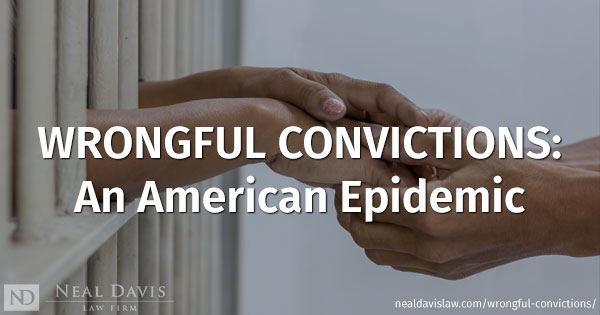When an unjust conviction for a crime is overturned, you may wonder if the person who is released from incarceration can get paid for the years they spent unjustly in prison.
The answer is yes, and the process is called restitution.
Restitution laws vary by state, and not every state has them. But in 37 states—including Texas—and the District of Columbia, exonerees can receive some level of financial compensation for the time in which they were unjustly imprisoned.
The Innocence Project, a non-profit legal-help group seeking justice for the innocent, notes that there’s also a federal standard to compensate persons who were wrongfully convicted of federal crimes. That amount is a minimum of $50,000 for each year of incarceration, with an additional amount paid for each year spent on death row.
Clearly, no amount of financial recovery can truly compensate a person for the precious years of their life they spent in prison, despite being innocent of a crime. But at least restitution laws provide the chance for some monetary help—and perhaps an added sense of justice.
Hawaii man, freed after 25 years, seeks restitution
Even so, restitution isn’t automatic. That’s why you need an experienced and knowledgeable restitution attorney or criminal defense lawyer to fight to see that you’re paid for the years that you were wrongfully imprisoned.
Such legal actions are currently happening in 1 of the 37 states in America that provide restitution: Hawaii.
There, Ian Schweitzer recently was exonerated thanks to new evidence—including DNA testing not available when he was convicted—after he spent 25 years in prison for allegedly raping and killing a female tourist in 1991.
Yes, criminal charges do get dropped. Learn why charges might be dropped before a trial and how to ensure your rights are protected.
According to ABC News, lawyers of the Innocence Project are assessing Hawaii’s restitution laws in hopes that the innocent man can receive $50,000 for every year he was unjustly imprisoned. In his case, that would mean a total of around $1,250,000 paid to him by the state.
Innocence Project attorneys are also seeking to exonerate 2 others who were wrongfully convicted of the crime:
- Schweitzer’s younger brother, Shawn, who’s in prison on a 130-year sentence, and
- Frank Pauline Jr., who died in prison.
Attorneys say the original convictions were based on false informant testimony and misapplied forensic evidence.
Additionally, the case’s new DNA testing has identified a sole and unknown male perpetrator.
Wrongful convictions and exonerations are rising across the U.S. Find out what’s causing this disturbing trend and what can be done to stop it.
Texas leads the nation in exonerations
Hawaii is a small state in population, and in a recent 30-year period, it only had 3 exonerations, as determined by the Neal Davis Law Firm’s full report on exonerations by state. But with more than 30 million residents, Texas is the nation’s 2nd most populous state, and Texas is 1st in the nation in exonerations.
Harris County, home of Houston, also leads America’s counties in the number of exonerations.
Texas criminal punishments can be severe, but Texas restitution laws are relatively generous. Its laws mean that a person who was imprisoned, exonerated and freed can get as much as $80,000 per year that they were wrongly imprisoned.
Exonerated persons in Texas also may be able to receive the following:
- An annuity
- Some reintegration assistance
- Money for legal assistance
- Money for any missed child-support payments
In one recent year, 16 persons were exonerated (proven innocent) and released from prisons in Texas. The state then paid them a total of about $7 million in restitution.
That’s an average of a little less than half a million dollars per person, which is Texas’s average amount of restitution per year.
When you’re charged with a crime, the details matter. Learn about different crime classification and their potential punishments in Texas.
Restitution payments aren’t automatic
But even in states such as Texas that have restitution laws, a lawsuit may be necessary to force the issue and gain such payments. They are not automatic.
Part of the fight for restitution involves the fact that an exonerated person in Texas must still be declared “actually innocent” by the court or by the prosecutor’s office in order to be compensated. In short, a wrongful conviction for a crime must be overturned, not only for freedom—but also for restitution.
Need an exoneration attorney or defense lawyer?
With that in mind, first things first. An innocent person who’s been wrongfully convicted and imprisoned for a crime they did not commit must first seek skilled legal help to fight for their exoneration and freedom. They need an experienced exoneration attorney or criminal defense lawyer to achieve that goal.
If someone in your family is in such a position, contact us today at the Neal Davis Law Firm to arrange a confidential consultation for your loved one’s case.
Innocent persons can be freed, and innocent persons can receive restitution when that happens. But for those things to occur, the innocent need the best legal help they can find.





